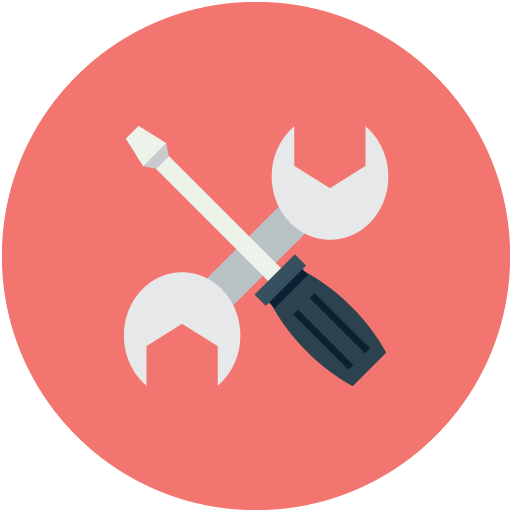Tell Stories With Data
Your data or mine?
With a unique combination of quantitative research, marketing and social media skills, I can not only get you the original data you need to rise above the fray, but also turn it into an irresistibly compelling story. Or I can work with the data you already have–like transaction data, social media metrics, app usage or customer feedback–to find the story that will win you new audiences and attention.
Data drives conversations
My content marketing projects drive social conversations because I bake the social strategy into the content. Each piece features tweetable links, bloggable excerpts and shareable infographics created by me or an independent designer. And it comes with a social media promotion plan calibrated to build your network and your brand.
The right form for your data-driven content
You can use data to power content like:
- White papers, reports and ebooks that generate media attention and leads
- Shareable infographics that present new insight
- Blog posts in an authoritative voice
- Presentations that make audiences take note
- Social media shareables like charts or data factoids
Data journalism for content marketing
Content marketers at the world’s most innovative companies and publications turn to me for data journalism that sets their content apart.
Here are some examples of my data-driven work.
No Results Found
The page you requested could not be found. Try refining your search, or use the navigation above to locate the post.
Power your content with data
Ready to start turning data into great, compelling content? Here are some of my top tips on how to tell great stories with data.

Pages tagged with “socialsignal” on del.icio.us

Oops, I poisoned my kids
Last month's "how the hell didn't I know that" moment was the discovery that Avent bottles, which both of my children have been drinking from daily for just about their entire lives, contain a suspected carcinogen.
I came across this info not through a consumer alert — that went out in 1999, before I was a parent and paid attention to these things — but because I set out to investigate the rumour I'd heard that plastic wasn't safe for food storage.
Edward Groth, the Consumers Union scientist behind the 1999 story leading to the alert, wrote that
There could hardly be more contrast in these two perspectives. One, based on firm conviction but no data, asserts that there is no effect of bisphenol-A in baby bottles, because none has been observed scientifically and because one part per billion of BPA is "too low" an exposure level to have biological effects. The other, based on simple, undisputed scientific facts, notes that polycarbonate bottles can expose babies to unimaginably large numbers of molecules of an estrogen-like chemical, several times a day. We must ask, on what basis can we presume that such exposure has no biological effects? What if "low-level" exposure is not intrinsically "safe;" what if, instead, our inability to measure effects has created an illusion of safety? In short, a precautionary risk assessment in this case would emphasize not the lack of concrete data showing harm in babies exposed to 1 ppb of BPA in their formula, but rather would recognize that 1 ppb is not necessarily a "low" exposure. It would assess the difficulties of knowing whether or not the quadrillions of molecules a baby ingests daily have any harmful effects on the tiny consumer's developing systems.
The dispassionate observers at plasticsinfo.org note that:
Polycarbonate has been studied and tested for nearly 50 years, and its use in products that come in contact with food is regulated for safety by the U.S. Food and Drug Administration (FDA) as well as governmental bodies worldwide.
Bisphenol A (BPA) is a key building block in polycarbonate plastic. In recent years, a number of researchers from governmental agencies, academia and industry have studied the potential for trace levels of BPA to migrate from polycarbonate products into food and beverages under conditions of typical use. Extensive safety data on BPA show that polycarbonate plastic can be used safely in consumer products.
As a result, the use of polycarbonate plastic for food-contact applications continues to be recognized as safe by the U.S. Food and Drug Administration, the European Commission Scientific Committee on Food, the German Federal Institute for Risk Assessment, the Japan Ministry of Health, Labor and Welfare, and other regulatory authorities worldwide.
By dispassionate, of course, I mean that plasticsinfo.org is the web site for the American Chemistry Councils' Plastics Division, which "represents leading manufacturers of plastic resins".
While I'm sure that the American Chemical Council wants nothing more for my baby than a long life full of plastic-purchasing opportunities, I'm afraid I can't take their "don't worry, be happy" message on this one. I've just gone out and purchased a supply of Gerber GentleFlow bottles at ToysRUs, which are made from polypropylene. If money were no object I'd go to Crocodile Baby on Fourth and buy the BornFree glass bottles.
And please note that BPA in baby bottles is by no means the only source of concern about kids and plastics. Check out the Smart Plastics Guide: Healthier Food Uses of Plastics for Parents and Children from the Instittue for Agriculture and Trade Policy. I've collected more resources on this topic and bookmarked them on del.icio.us.

Falling for Facebook
I'm besotted with Facebook. I can see it becoming the primary way that I — and many other people — interact online. So if you aren't on Facebook already, join now. Now.
Still here? Don't tell me, you need actual reasons to join. Fine, here goes:
- It's huge, and it's growing. While Facebook started as a network for college students, it opened up to anyone who wanted to join in September 2006, and grew more than 75% — to almost 25 million users — by February. I haven't found numbers more recent than that, but I can say that between 1-3 people in my own personal address book (1500 email addresses) are joining every day.
- Your friends are already there. If you import/connect to your address book when you sign up , you'll discover all the folks you know who are already on Facebook. This is a great way to keep in touch with them. You can even find out who in your universe is already on Facebook, before you sign up yourself.
- It mixes business with pleasure. Unlike LinkedIn, which feels like some sort of massive résumé swap, Facebook brings a personal side to its user interactions. More than half of my Facebook friends are colleagues or professional acquaintances, and now I'm finding out about their personal passions as well as their professional pursuits.
- It's one-stop shopping. Facebook offers blogging, photo sharing, messaging, web-to-mobile communications, social networking, and groups.
- It's a window on your world. Once you've added your contacts to your list of Facebook friends, your Facebook home page will be the best place on the web for you to find out what's going on with the folks you know. My favourite part of Facebook — the thing that makes it truly addictive — is checking in to see what's going on with all my friends and groups. I can see my friends' latest status reports, their latest new friends and groups, their notes, their photos….all in one place. The best way to get how cool this is is to take a look, but I don't think I can really share a screenshot because that would mean sharing details on my friends' activities. And that underlines what is so great about the Facebook feed: it feels far more personal than what you'd normally see on the wide open web.
- It's pretty. God knows, I've fallen in love with my share of social media tools, but most of them have required me to look past a barebones or even downright ugly interface in order to appreciate the inner beauty of content sharing, social networking, or whatever. In contrast, Facebook has a very polished interface.
- It can help you connect with your community. Facebook has now got an API — application programming interface — that lets people extend Facebook with all sorts of little applications and enhancements. (Check out some of the options so far.) And that API is going to see Facebook integrated into more and more 3rd party sites. If you find it easier to connect with your members, supporters, customers or friends on Facebook than to lure them into registering on your own site (and for most organizations, it will be MUCH easier to connect via Facebook) you need to start thinking now about how you can integrate Facebook's community and functionality into your own site.
I'll have more to say about Facebook — and especially about the options for integrating Facebook with external web communities — in the coming weeks. But if you want to understand why this matters, you need to join Facebook now. And once you do, be sure to add me as a friend!

Social Signal: Online community. Real-world impact.

Dreamhost goes green
I’ve just discovered that Dreamhost, which we use to host all of our personal sites, is carbon neutral. They’re buying carbon credits so that their users can proudly note that they have carbon neutral sites. Bravo, Dreamhost.

